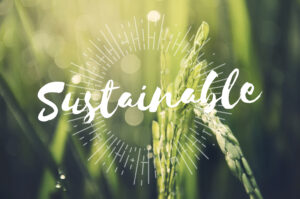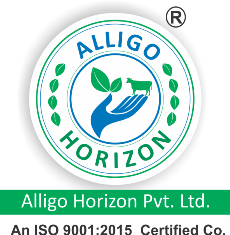6 Basic Methods of Organic Farming
6 Basic Methods of Organic Farming
In today’s time where people are falling prey to chronic diseases easily, who would like to risk their life with the harmful pesticides and fertilizers? You should know that there is a way to rescue ourselves from these life threatening chemicals and that is Organic Farming. Organic farming is not a new concept; it is being practiced from ancient times.
Organic Farming is a farming method which aims at cultivating the land and raising crops in such a way that the soil is kept alive and in good health by use of organic wastes (crop, animal and farm wastes, aquatic wastes) and other biological materials. Organic farming is done to release nutrients to the crops for increased sustainable production in an eco-friendly and pollution-free environment. It aims to produce crop with a high nutritional value.

There are various methods by which organic farming is practiced are as follows:
1. Crop Diversity: Now a days a new practice has come into picture which is called -Polyculture- in which a variety of crops can be cultivated simultaneously just to meet the increasing demand of crops. Unlike the ancient practice which was -Monoculture- in which only one type of crop was cultivated in a particular location.
2. Soil Management: After the cultivation of crops, the soil loses its nutrients and its quality depletes. Organic agriculture initiates the use of natural ways to increase the health of soil. It focuses on the use of bacteria that is present in animal waste which helps in making the soil nutrients more productive to enhance the soil.
3. Weed Management: -Weed- is the unwanted plant that grows in agricultural fields. Organic agriculture pressurizes on lowering the weed rather than removing it completely.
4. Controlling other organisms: There are both useful and harmful organisms in the agricultural farm which affect the field. The growth of such organisms needs to be controlled to protect the soil and the crops. This can be done by the use of herbicides and pesticides that contain less chemicals or are natural. Also, proper sanitization of the entire farm should be maintained to control other organisms.
5. Livestock: Organic farming instigates domestic animals use to increase the sustainability of the farm.
6. Genetic Modification: Genetic modification is kept away from this kind of agricultural set up because organic farming focuses on the use of natural ways and discourages engineered animals and plants.
Organic Farming is very helpful of crops and plants to grow healthy and effectively. Alligo Horizon brings to you 100% organic certified residue free products for plants and crop growth. Organic farming is one of the essential and cost effective practice that is beneficial to boost soil-fertility. Residue free farming leads to a good and fertile soil growth. Organically trusted and certified as well as a patented product are made available by Alligo horizon.
Tried and Tested Indocert Certified Organic Residue Free Products are one of the specialties’ of Alligo Horizon, products like Qprax, Stress out, Humic Acid family, Seaweed Extract family, Telnar, Silicon Super Spreader family etc. are the certified and organic products used by many business and farmers for healthy and organic crop growth.
Also Organic farming is one of the major factors that could be considered as or in Residue-free farming. even though they wield chemical fertilizers and replace them with living actuality and no production quality of residue farming products has been restrained. Also in today’s world both organic and residual products have their own differential stages. Organic farming creates an impact on agricultural ventures as well as a growth in farmer’s income and Residue-free products have an impactful power image when used on crops and can maintain soil and land productivity.
For more visit:- www.alligohorizon.com

 Next Post
Next Post